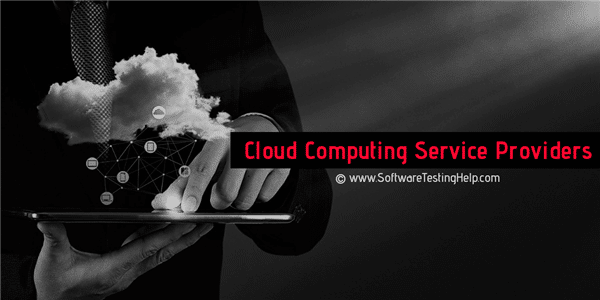For managed service providers, or MSPs, the cloud is both a blessing and a curse. It’s a blessing because MSPs can use the cloud as the foundation for an entirely new selection of managed service offerings that in the past were not practical to offer. It’s a curse because companies that used to pay MSPs for managed services can instead choose to get them directly from the cloud providers themselves, eliminating the MSP. Should MSPs offer managed services based on public cloud platforms? Or should they stay away from anything cloud-based to minimize the risk that customers will fire them and switch to a platform like AWS? This article provides perspective when discussing the pros and cons of using the cloud as an MSP.
How Can MSPs Use the Cloud?
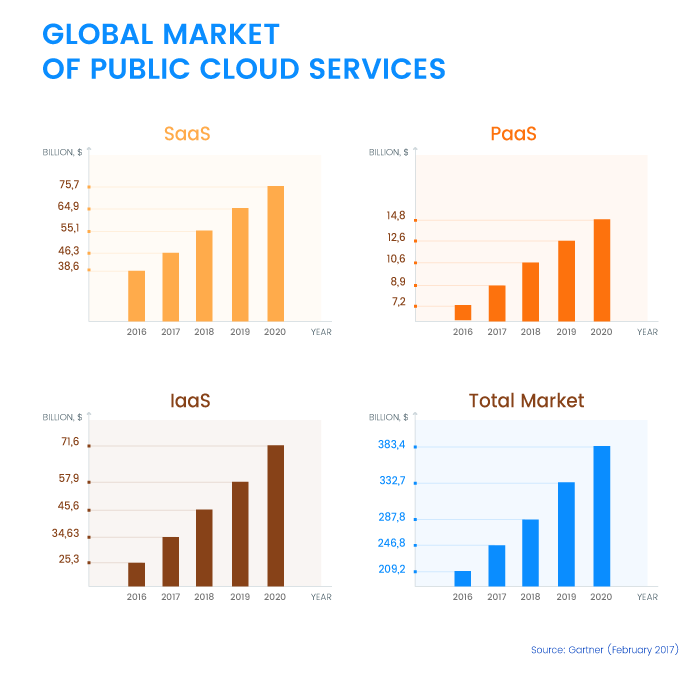
MSPs specialize in providing IT services to third-party companies. To see also : MSP Acquired: Logically Buys Managed IT Services Provider Halski Systems. Companies can hire MSPs to do everything from managing employee workstations, configuring and monitoring networks, backing up data, and more.
Historically, MSPs provided these services using their own hardware and software environments. If an MSP provided data backup, for example, the MSP would typically have to maintain a set of servers and storage media on which the backups were stored. Or an MSP that managed workstations would have to configure and maintain the PCs and software that powered those workstations.
But with the cloud, it has become possible for MSPs to essentially outsource some of their infrastructure – and, in certain cases, software – requirements to cloud providers. Today, instead of managing the physical infrastructure to store backups, an MSP could simply store data backups on a public cloud service like AWS S3. Likewise, an MSP that manages workstations can use a desktop cloud service to provide much of the software needed by the workstations. (The MSP may still need to manage physical PCs, but desktop cloud services can greatly simplify the deployment and management of the operating system and applications running on each PC.)
Therefore, the cloud presents opportunities for MSPs to simplify their operations while offering an expanded set of managed services to customers. In some cases, they might even offer services that simply wouldn’t be practical to deliver without the cloud. A small MSP might not want to maintain a data center to store data backups, for example, but that’s not an issue when the MSP can use a public cloud.
Why MSPs Should Use the Cloud

To build on the above, there are several reasons why MSPs might choose to use the cloud: See the article : MITRE Engenuity Announces ATT&CK® Evaluations Call for Participation for Managed Services.
Given advantages like these, it’s not surprising to see a growing pool of observers encouraging MSPs to use the cloud.
Why MSPs Should Not Use the Cloud
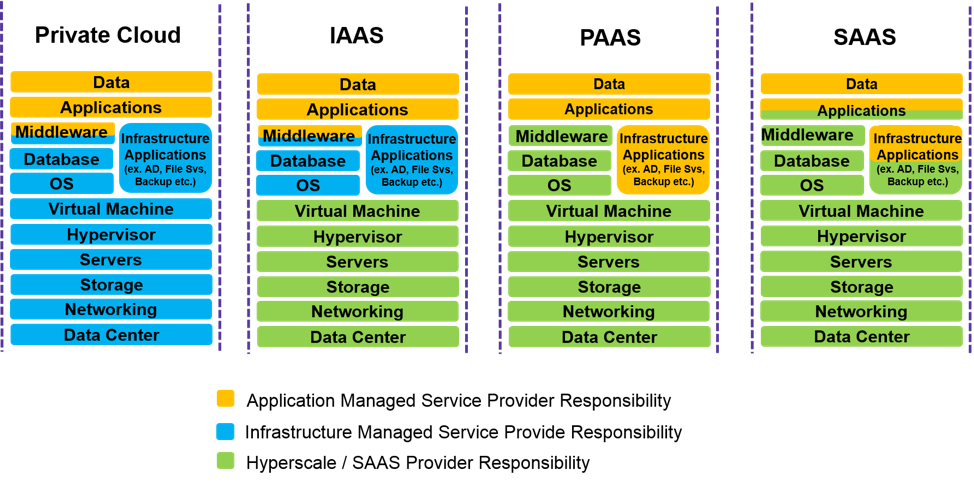
As with most IT trends, however, the cloud is not the right solution for every MSP out there. See the article : Fraser Advanced Information Systems acquires managed services company. Before moving to a cloud-centric MSP business model, it’s important to weigh the downsides of the cloud from an MSP perspective:
Getting the Most from Cloud-Based Managed Services
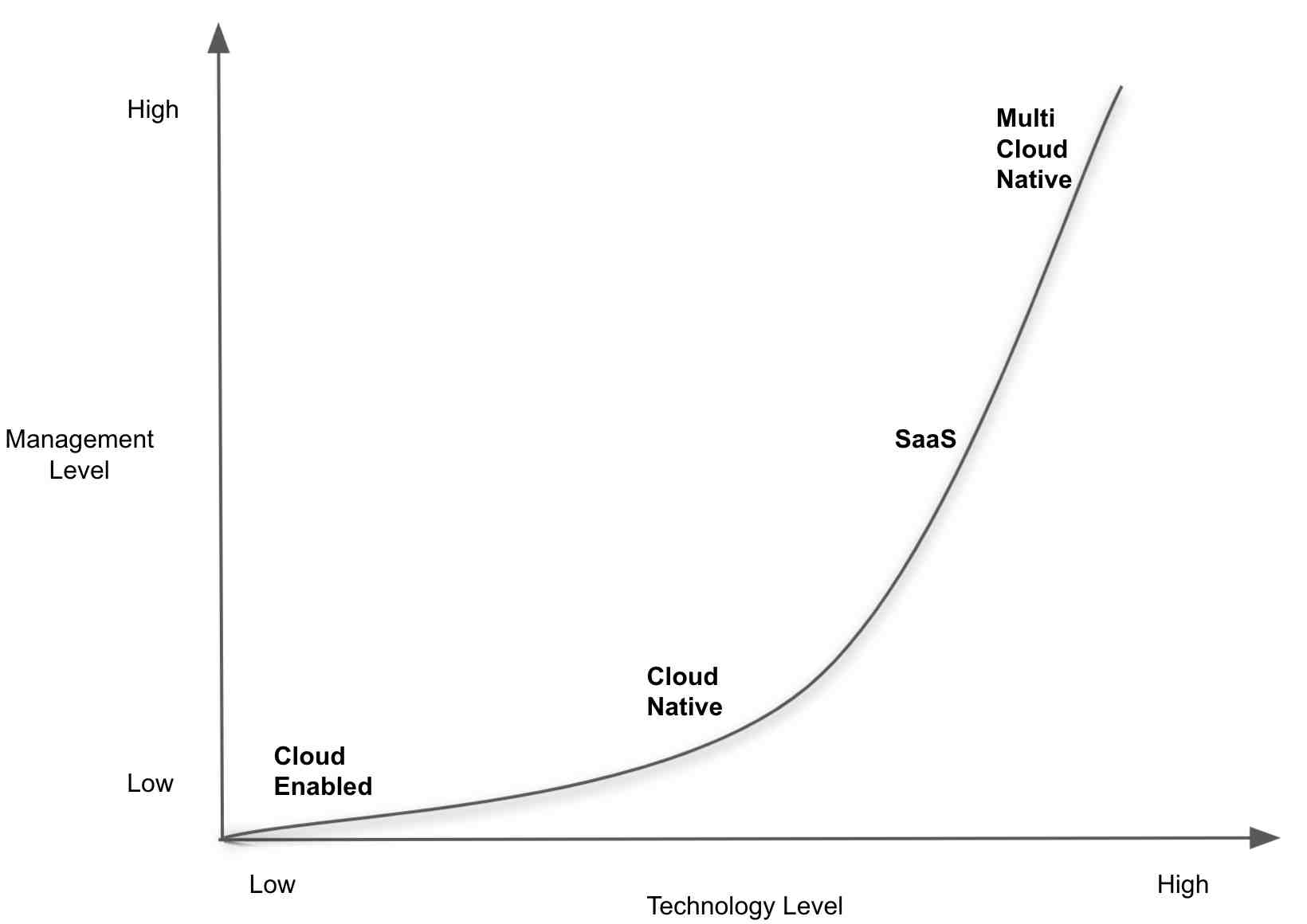
To avoid these pitfalls, MSPs should focus on offering cloud-based managed services that allow them to add significant value, rather than just reselling what cloud providers offer on their own. The more difficult it is for customers to deploy a cloud service, the more MSPs can charge and the lower the risk that customers will try to deploy the service themselves.
Therefore, strategies such as reselling SaaS applications, which customers can typically deploy on their own quite easily, may not be as wise as using cloud IaaS services to build custom managed service offerings.
Conclusion: To Use the Cloud or Not to Use the Cloud
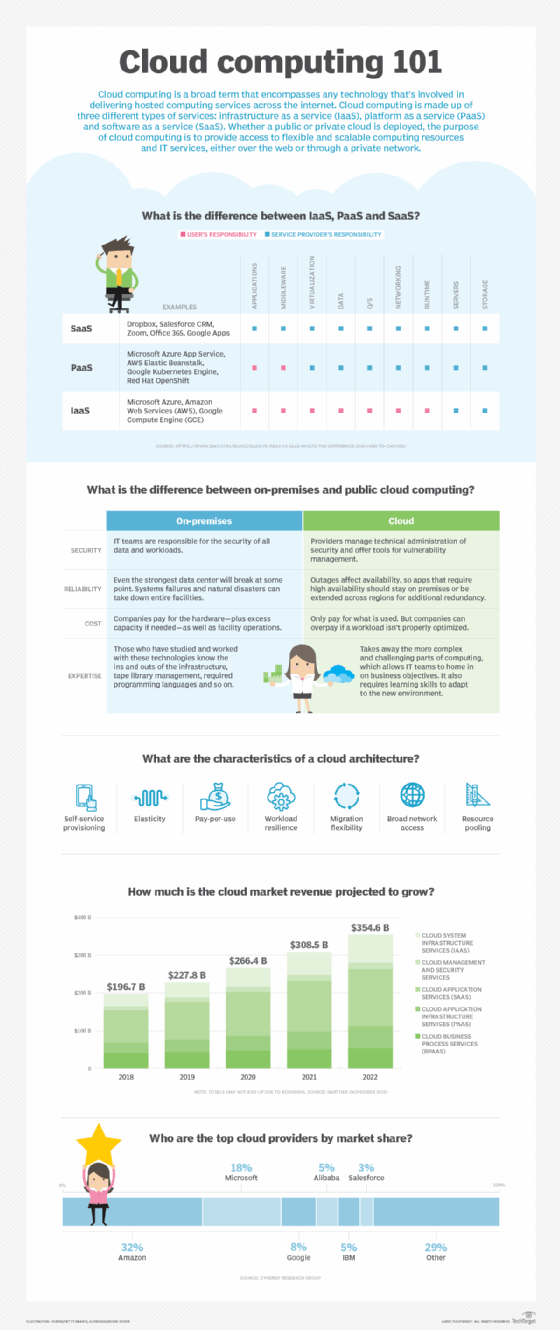
There is no simple answer on whether or not MSPs should use the cloud. For many MSPs, leveraging public cloud services to create their own managed service offerings makes a lot of sense. But it’s crucial to weigh the cost and complexity challenges associated with the cloud, as well as considering the likelihood that customers will use the cloud without the help of MSPs.
What is Managed Services in Azure?
It’s a simple concept: Managed Services let you outsource your IT operations or increase your resources to get more out of Microsoft Azure deployments. However, choosing the right partner is a critical step in maximizing the value of a managed services provider relationship.
What are examples of managed services? To get a better sense of why managed services are at the front and center of modern IT, let’s dive into four examples of successful managed services:
- Supply chain management. …
- Enterprise Resource Planning. …
- Logistics and analytics. …
- Sustainability consultancy and guidance. …
- Pushing managed services to the limit.
What Microsoft managed services?
A managed services provider supports your Microsoft Azure systems and applications or helps you extend your capabilities. An MSP provides knowledgeable insights to help you determine what you need, design your ideal cloud solution, manage your migration, and then provide ongoing management and optimization support.
What is included in managed services?
In addition to traditional application and infrastructure management, managed services can also include storage, desktop and communications, mobility, help desk and technical support. In general, common managed services include the following applications.
What is meant by managed services?
Simply put, an MS is designed to handle the day-to-day operations of your specialized applications. Managed Services can: Provide more features to your company’s end users. Allow in-house IT to focus on more strategic IT programs.
What is meant by managed services?
Managed Services is the practice of outsourcing the responsibility of maintaining and anticipating the need for a variety of processes and functions to improve operations and reduce expenses.
What is an example of a managed service provider?
Examples of Managed Services Providers Major players in the managed services market include Accenture, Fujitsu, IBM, Cisco Systems, Ericsson, Lenovo, DXC and Hewlett Packard Enterprise Development, according to Grand View Research.
What are managed services and why are they important?
Managed services are a cost-effective way for small and medium businesses to increase their competitiveness. They allow you to benefit from the same quality of equipment, level of experience and support that you would find in much larger companies.
Why is azure managed services?
With the help of an Azure Managed Service, you gain the freedom you need to successfully leverage cloud innovation and opportunities. You get a stronger focus on the essentials of your own company’s goals and, at the same time, you get a strong partner who is “By Your Side in a Digital World”!
Why do people buy managed services?
Managed IT services allow organizations to focus on core projects and strategic initiatives rather than day-to-day operations. This saves money in the long run and, in addition, many managed services cost less than other traditional services and employees.
What is the difference between staff augmentation and managed services?
The essential difference between the two models is that, in a managed services (outsourcing) model, the provider is committed to delivering a “result” at a set price versus an “input” as in the staffing model. … In the staffing model, the only service commitment is the working day.
What is a managed services model? A managed services model, also known as a fully outsourced model, is a distinct type of outsourcing that covers all IT functions. In a managed services model, the provider makes all technology decisions, as long as the decisions are within the parameters that the company has defined.
What is considered staff augmentation?
Staff augmentation is the use of external staff on a temporary basis to increase the capacity of an organization.
Is staff augmentation time and material?
Workers may need to take on other projects or leave the supplier’s company for a more permanent role before the project ends. In addition, staff growth is typically charged in a time and materials pricing model, which means you may end up incurring unnecessary costs in the long run.
What is staff augmentation a model to extend your team?
Simply put, staff augmentation is the use of external experts on a temporary basis to increase the organization’s capacity. It is a kind of outsourcing strategy in which employees are hired to fill gaps in projects that meet current business objectives.
What is the difference between staff augmentation and outsourcing?
The main difference between project outsourcing and staffing is that, as your staff grows, you are acquiring engineering resources, maintaining direct control over your staff (along with the associated risks of a potential downside), while with outsourcing, you are paying for a certain ,…
What is staffing and outsourcing?
Main conclusions. The traditional outsourcing model focuses on the completion of the project by an external service provider. The outsourcing model focuses on hiring remote workers to temporarily fill specific gaps.
Is staff augmentation considered outsourcing?
Staff augmentation is a type of outsourcing service, in which a software company provides its engineers in the form of an external contract, usually on the basis of a Time and Materials contract.
What is staff augmentation vs managed services?
Staff augmentation is used to outsource specific tasks and functions (inbound). The managed services model outsources the entire problem and solution to a third-party provider (output).
What is the difference between managed services and staff augmentation?
The essential difference between the two models is that, in a managed services model, the provider commits to delivering a “result” at a set price compared to an “input” as in the staff augmentation model. … In the staffing model, the only service commitment is the working day.
What is MSP used for?
A managed services provider (MSP) provides a computing framework platform for organizations to remotely manage their customers’ IT infrastructure. Services can also extend to managing end-user systems, primarily proactively or under a subscription model.
What is an MSP system? A managed services provider (MSP) is a third-party company that remotely manages a customer’s information technology (IT) infrastructure and end-user systems. … These services can include network and infrastructure management, security and monitoring.
What is MSP and what are the uses of IT?
The MSP is the price set by the Government of India to protect the producer – the farmers – against excessive price drop during the years of abundant production. Minimum support prices are a guarantee price for your Government products.
Why is having an MSP important?
MSPs offer essential services that can help small businesses compete in a highly competitive market, reducing costs and influencing broader economic growth. The specialized tools used by MSPs are the backbone of their service offering, which is why choosing the right software is so important.
What is a MSP in simple terms?
A managed services provider (MSP) is a third-party company that remotely manages a customer’s information technology (IT) infrastructure and end-user systems. Small and Medium Businesses (SMBs), nonprofits, and government agencies hire MSPs to perform a defined set of day-to-day management services.
What is CSP and MSP?
A case in point is the term Managed IT Services, or Managed Services Provider (MSP), versus Cloud Services Provider (CSP). Some companies just call themselves MSPs or CSPs, while others may list both terms in their marketing materials. … Essentially, CSPs address an enterprise’s IT needs in the cloud.
What does MSP stand for in security? A Managed Services Provider (MSP) ensures that your IT systems are operational, but a Managed Security Services Provider (MSSP) offers true security as a service, ensuring your people and systems are protected, secure and in compliance.
What is a CSP cloud?
A cloud solutions provider (CSP) is a company that provides companies with cloud-based software infrastructure, networks, and applications. Microsoft has developed a program to allow CSPs to offer popular Microsoft products directly, along with their own value-added products and services.
What is CSC in cloud computing?
CSC’s Cloud Orchestration Services provide automated arrangement, coordination, federation, management, security and operation of private, public and hybrid cloud computing environments, supporting industry-specific audit and compliance services.
What does Microsoft CSP mean?
The Microsoft Cloud Solution Provider Program (CSP) enables partners to directly manage the entire Microsoft cloud customer lifecycle. … This program helps Microsoft partners become trusted advisors to their customers.
What does IT MSP stand for?
In the IT channel, “MSP” means “Managed Service Provider”. This term may also be referred to as: Managed Service Provider. Managed IT Service Provider. … Office technology supplier.
What does a managed service provider do?
A managed service provider (MSP) offers services such as network, application, infrastructure and security through ongoing, regular support and active administration at the customer’s premises, in the MSP data center (hosting) or in a third party data center .
What are some examples of service providers?
Examples are telephone companies (see common carrier), Internet service providers (see ISP), application service providers (see ASP), storage service providers (see SSP) and content providers (consult your cable and digital service provider).
What are cloud MSPs?
AWS Managed Service Provider (MSP) partners provide customers with full lifecycle solutions in cloud infrastructure and application migration. They support four main areas: plan and design; build and migrate; run and operate; and optimize.
What does an MSP provide?
A managed service provider (MSP) offers services such as network, application, infrastructure and security through ongoing, regular support and active administration at the customer’s premises, in the MSP data center (hosting) or in a third party data center .
Why does MSP have cloud?
Public cloud environments operate on a pay-as-you-go pricing model, which means you only pay for the resources you use. An MSP can help ensure that every cloud resource you have is used to its fullest. That way you’ll know when you’re using unnecessary resources.
What is the value of managed services?
They provide all the specialized proactive monitoring and maintenance, fix things quickly when they break, and just keep you posted on activities and status on a weekly and monthly basis.
WHY are IT managed services important to your business? Managed services are the way of the future because they allow companies to discover and address technical issues before they can harm their business. Thanks to proactive service and regular maintenance, you can be confident that your computer network will run smoothly and efficiently.
How do you value a managed service company?
For most MSPs, it is best to use a multiple of earnings before interest, taxes, depreciation and amortization (EBITDA). This is the best way for owners to measure business performance without having to consider accounting and tax environments.
How do you value MSP?
When looking at how to evaluate an MSP, the top four items in the valuations are EBITDA (earnings before interest, taxes, depreciation and amortization), recurring revenue value, customer retention rate, and the company’s revenue growth, he said. Sahyoun.
How much is an MSP worth?
Based on my own experiences with MSPs, depending on various factors, MSP valuations can range from 3 to 10x EBITDA. Here are some of the factors that impact your assessment: Net Income Percentage: A 20% net income company will command a higher multiple than a 15% company.
What is the real value of IT managed service?
That said, managed IT services are the most commonly referred to type of managed service and will be the focus of this article. Demand for managed services has grown exponentially in recent years. The global managed services market was valued at $185.98 billion in 2019 and is projected to reach $356.24 in 2025.
Why are managed IT services important?
Managed IT services allow organizations to focus on core projects and strategic initiatives rather than day-to-day operations. This saves money in the long run and, in addition, many managed services cost less than other traditional services and employees.
What are cybersecurity services?
What are cyber security services? Cybersecurity refers to protecting a company against unauthorized or criminal use of electronic data, and cybersecurity services are the comprehensive processes implemented to achieve this security and protect against common cyber threats.
What is a cyber security service provider? At the Department of Defense (DOD), Cyber Security Service Providers (CSSPs) play a unique component of the Department of Defense’s defense-in-depth strategy. A CSSP is an organization that provides one or more cybersecurity services to implement and secure the Department of Defense Information Network (DODIN).
What is mean by cyber security services?
Cyber security is the application of technologies, processes and controls to protect systems, networks, programs, devices and data from cyber attacks. It aims to reduce the risk of cyber attacks and protect against unauthorized exploitation of systems, networks and technologies.
What is the use of cyber security services?
The purpose of cyber security is to prevent data breaches, identity theft and cyber attacks, as well as risk management in some cases. When a company applies an effective incident response plan and has strong network security, it is better positioned to mitigate and prevent cyber attacks.
What are services in cybersecurity?
Cybersecurity Services Overview Your cybersecurity program can include everything from security awareness training for your staff to ongoing threat search, monitoring, management, and endpoint protection whenever you need the extra level of threat defense cybernetics.

